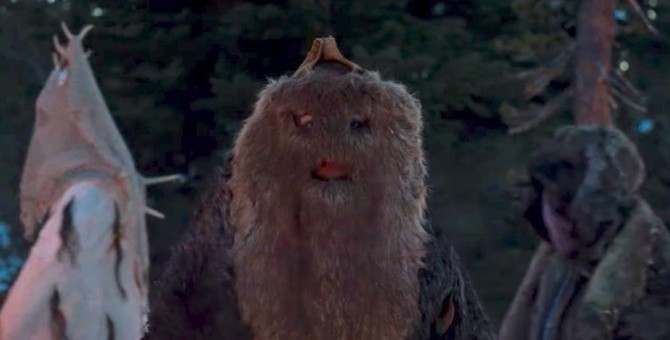If you’re anything like me, you’ve wondered if there’s a secret equation to breaking into Hollywood as a screenwriter. The feeling by most is that there isn’t. In fact, many people think Hollywood is a lottery. That it’s 5% work and 95% luck. There’s nothing that infuriates me more than this take. Sure, there are some people who get lucky. And yes, luck plays a small part in any endeavor. But, by and large, most writers who break into Hollywood earn their spot.
But how did they do it? Well, today I’m going to introduce an equation that, if you follow it, you too, will find yourself writing six-figure assignments. It isn’t easy. I would go so far as to say it’s quite difficult. But at least you’ve got a blueprint you can follow as opposed to all this directionless ‘blowing in the wind’ you’re doing right now. Without further ado, let’s get to the equation! It is…
Time Writing + Learning IQ + Talent + Hustle + Persistence = Success
For each of these variables, you will assign a number from 1-10. 1 being you’re not good at it at all. 10 being you’re great at it. The best possible score would be 50. The good news is, I’ve found that most writers only need to score in the top 20% (between 40-50) to make it. And that some writers, believe it or not, can become professionals scoring as low as 35. Still, I would aim for that 40 number. If you can get above that, you’ll become a professional screenwriter.
Now, let’s go over what each of these variables mean…
Time Writing – The fastest way to get better at screenwriting is to do a lot of screenwriting. But what’s a lot of screenwriting? If you’re serious about being a professional screenwriter, you should write at least two hours a day. If you’re writing two hours a day, I’d give you a 6 out of 10 on the “Time Writing” scale. Every extra hour per day adds 1 additional point to your score. Three hours a day equals 7 out of 10. Four hours a day equals 8 out of 10. Also, every screenwriter should aim to write 2 scripts a year. If you can carve out more time, go for three. If you have endless amounts of time, shoot for four. The more you write, the more mistakes you make and learn from, the more feedback you get – all of these things are going to accelerate your learning curve.
Learning IQ – This isn’t one that’s talked about enough but it’s a big one because if there’s one thing I see a lot of with screenwriters it’s a lack of improvement. They tend to make the same script mistakes over and over again. Their concepts don’t improve. Their plotting, dialogue, and characters don’t improve. This tends to happen due to one of three things. One, the writer is too lazy to learn from their mistakes. They write aimlessly and never dissect their screenplays to see where they can get better. Two, they’re stubborn. They’re the kind of writer who assumes their way is right and they’re never open to new ideas or the possibility that what they’re doing is wrong. Or three, they’re convinced that they know better than the professionals. The Hollywood system churns out a bunch of terrible films so obviously it needs to be changed and they’re the ones who know how to change it. These writers write weird genre-bending material that is so set on disrupting the system, they forget to write clear entertaining stories. The good news is, if you come to this site and you’re taking all of my analysis to heart – even the stuff you don’t agree with – you’re learning a lot. This should be the easiest variable to score a 9 or a 10 in. Treat this craft as a school and you’re the student. There’s always something new to learn, always ways to get better. You should always be trying new things in your scripts.
Talent – Ahh, the most hotly debated of the variables. A lot of people believe that if you have talent, you’ll make it. And if you don’t, you won’t. Nothing could be further from the truth. Talent helps. But it’s just one variable amongst five. It is, however, the variable you have the least control over. You can’t “learn” talent. Talent tends to go to the writers who have the most unique voice. It goes to the writers who are the best at dialogue (since dialogue is so talent-dependent). When it comes to rating yourself in this category, understand that, due to human psychology, your assessment of your talent is probably higher than the reality of it. In fact, I would say that whatever you think your talent level is, deduct two points from it to get the real score. The only people who shouldn’t deduct points are those who have been told, constantly, throughout their lives, by people who aren’t their family, that they are talented writers. If that’s something you’ve heard from a dozen different people in your life, you’re probably near a 9 or a 10 in the talent category.
Hustle – If you scored low in the talent category, you have to score high in the hustle category. You can’t be bad at both. Hustlers are those people who enter all the contests, who cold query all the managers and producers and agents, who join writing groups, who are masters at keeping up their writing network. They’re people who, when they finish a script, they put together an entire plan of who they’re going to target and make an aggressive effort to execute that plan. Hustlers are salesman. They understand that the social aspect of this business is a necessary component to achieving success.
Persistence – Persistence is the art of never giving up. You probably need this variable more than any of the other ones. Cause you can spend a lot of time writing, you can be a fast learner, you can be talented, and you can hustle. But if you quit before all of those variables have time to blossom, it doesn’t matter. The unofficial timeline for becoming a professional writer is five years. But, the reality for most of us is it’s closer to ten. So if you’re not going to persist in this endeavor, there’s no point in trying it. Most writers don’t even start understand storytelling until their fifth script. Figuring out this number is easy. You get a point for every year you’re willing to put in to make it. Therefore, if you’re willing to give it five years, you get a 5 out of 10. Seven years, 7 out of 10.
Once you have all your numbers, add’em up. Hopefully, you’re somewhere near 40. If you’re not, look for places where you can improve. For example, if you don’t have time to write three hours a day during the week, maybe you can add some hours on the weekend. If you suck at hustling, block out a month a year where that’s all you focus on, is querying and expanding your network. Every person you send your script to, regardless of whether they’re in the industry or not, is one more person who could potentially help you. There are even ways to improve your talent level. For example, if you have a weak writing voice, write a practice script where you abandon all technical pretense and only follow that wild untethered voice in your head. You’ll likely have something messy and unusable at the end, but you’ll have improved your ability to tap into your subconscious, which should make your writing livelier.
I’m going to leave you with one final piece of advice. You will never rise above your opinion of yourself. There’s no guarantee that you’ll make it even if you believe you will. You might or you might not. But I can guarantee this. You will never make it if you don’t believe you will. So of those two options, it’s imperative that you believe. And if you don’t, figure out what’s going on internally so that you can change that negative belief into a positive one. Because you will only keep after it if you believe that doing so will result in achieving your objective.
Have a happy weekend everybody!
Genre: Spy/Action/Thriller
Premise: Based on a true story, when an American spy in the Middle East is outed by a Washington Post article, he becomes a target of the Iran military.
About: The next project for director Ric Roman Waugh and his good buddy, Gerard Butler. The script is written by former intelligence officer Mitchell LaFortune. If that name sounds familiar, it’s because LaFortune wrote another Middle East script called War Face about a female U.S. Army Special Agent who’s sent to an all-male Afghanistan outpost to investigate accusations of war crimes. Waugh and Butler worked together before on Greenland and Angel Has Fallen.
Writer: Mitchell LaFortune
Details: 111 pages
As we all know, this project stole both Ric Roman Waugh and Gerard Butler away from Kinetic. So I’m not bitter. Like, not bitter at all. I fully support this movie, despite the fact that both of them could’ve spearheaded the greatest semi truck movie ever made, a blue collar John Wick that will go on to become a billion dollar franchise.
For those of you curious, Kinetic is still moving forward. It’s just happening slowly and with a lot of boring developments (legal steps). Once we have some more “announce worthy” announcements, I will let you guys know! Now on to Burn Run!
Burn Run is a complicated story so I’m going to condense and simplify the main plot points for you. Basically, there’s this guy named Tom. Tom is a former soldier who now installs cable internet in Afghanistan. Talk about a dream job. After Tom finishes his latest installation, an old friend, Roman, tells him he needs Tom to go set up an airstrip outside of Herat. Tom doesn’t want to but accepts the job anyway.
Meanwhile, back in the U.S., a Washington Post reporter screws over an intelligence agent she was sleeping with named James, who brought her classified information about how Iran has secretly restarted its nuke program. Except that’s not the story the Post prints. They go with the story that the U.S. has a bunch of spies in the Middle East setting up an internet that will spy on Iran. And guess who they name? Tom.
Iran’s head of government puts out an APB on Tom. Find and kill him at all costs. The closest CIA extraction operative to Tom is his buddy, Roman, but as soon as Roman reaches the airport, he’s captured by the local government. The U.S. calls Tom and gives him the bad news. He’s on his own. His best bet is to get to Kandahar, which is occupied by Britain. If he can get there, they can get him on a plane. Tom joins his translator, Mohammed, and off they go.
Along the way, Iran does everything in their power to capture Tom, sending helicopters, special army units, assassins. When their truck is damaged, Tom and Mohammed will have to continue on foot, forcing them to trust local Afghani tribes. The race to Kandahar gets slower by the hour. Do they have enough to make it? Or was this escape mission doomed from the start?
This is a script you would never ever ever ever ever write as a spec. It will take the average reader three hours to get through. And that’s a conservative estimate. The sheer number of people of different military backgrounds and different country backgrounds and different jobs is staggering and impossible to keep up with unless you’re taking meticulous notes.
The only time you would write a script like this is if a director or producer comes to you with the idea first, and therefore you’re only writing the script for one person (them). Or if you’re someone with a long esteemed career and people will read anything you write. Otherwise, this kind of script dies on the page because the burden of investment required to keep up with the story is insanely high.
Now, here’s the confusing part. I think this script *was* written as a spec. So how does that work? I’m guessing that LaFortune is in the unique position of having been an intelligence officer. His official status combined with a true story probably got this script enough attention to get it sold. But I’m telling you, 99.999999999% of the time you try and write a script this hard to follow, nothing will come of it.
With that said, there are some screenwriting lessons to learn from Burn Run.
One of the early plot threads has a fellow intelligence officer (Roman) coming in to rescue Tom. When that happened, I thought, “Hmm… that’s an interesting choice. If Roman is coming to rescue Tom, then that means Roman is being ACTIVE and Tom PASSIVE.” That’s not how you want to treat your protagonist. Your protagonist should always be the active one in the story.
Therefore, I wasn’t surprised when Roman was detained at the airport and the CIA had to call Tom and tell him he was on his own. In movie terms, “On your own” means ACTIVE, which, again, is how we want our protagonists. We want them moving, making choices, in charge of their own fate.
Now, you could add a secondary active plot into your story as long as your hero is involved in the first active plot. For example, let’s say that Tom is at Location A and he must get to Location B. That gives him an active plotline. Meanwhile, Roman can be in charge of meeting Tom at Location B. Now, you’re cutting between two active plotlines – Roman trying to get to Location B and Tom trying to get to Location B. But, eventually, you want something to happen to Roman so that Tom has the lone active plotline. Or, you can have Roman and Tom connect and become active as a team.
Another screenwriting concept Burn Run offers is DOUBLE URGENCY.
On Monday, we talked about Double Conflict. Today, we’ll talk about double urgency. Urgency is any ticking clock you place on the hero’s objective. That way, they don’t just have to do something. They have to do something in a limited amount of time. Here, we have the basic urgency of Iran’s intelligence trying to find and capture Tom. The fact that they’re closing in puts a ticking clock on Tom’s journey.
But we also learn that Kandahar, which is currently under British control, is being attacked by the Taliban and probably isn’t going to last more than 48 hours. Which means Tom wouldn’t be able to get on a plane and leave Afghanistan. This gives us double urgency – being chased by Iran AND Tom only having 48 hours to get out of the country.
Pro Tip: At the end of your urgency, always have an “OR ELSE.” “Or Else” becomes the stakes for your movie. So, in the case of Burn Run, you’d say, “Tom must get to Kandahar within 48 hours OR ELSE.” Or else the Taliban takes over the city and he can’t get out. Without an “or else,” urgency means nothing.
This is a difficult one to call because there’s some good stuff in here. For example, there’s this whole subplot about James and the Washington Post writer he slept with who ended up outing him to get her story published. She uses his love for her to try and get back into his good graces, in effect to write follow-up stories, and we’re wondering if James is going to realize she’s bad news and ditch her. Or if he’ll fall victim to her deceitful ways once again. It was a solid subplot.
But the script is so jam-packed with characters and exposition, you only occasionally understand what’s going on. I know from experience that if you’re still introducing characters past page 90, your story is too complicated. And Burn Run introduces characters past page 90. The script is right on the line between ‘worth the read’ and ‘wasn’t for me’ but I think I’m going to let my screenwriting philosophy dictate which side it lands on.
KEEP IT SIMPLE STUPID.
That’s my philosophy. And Burn Run kept it way too complicated.
[ ] What the hell did I just read?
[x] wasn’t for me
[ ] worth the read
[ ] impressive
[ ] genius
What I learned: This is a good time to remind writers of the power of COMBINING CHARACTERS. If the reader’s mind is taxed by trying to remember people, it means they’re not enjoying your story. So you should always be looking to simplify things where possible. One of the oldest tricks in the book is to combine characters. If there are two characters who have similar functions in the story, why not combine them? Burn Run could definitely have benefited from this.
Genre: Drama
Premise: When a reclusive 600 pound online English teacher learns he’s going to die soon, he tries to reconnect with his rage-filled teenaged daughter, who hates him for destroying their family.
About: This is the next big Darren Aronofsky project. It will star Brendan Frasier, who you could say we’re going to be seeing a lot more of in more ways than one. Also starring will be Stranger Thing’s Sadie Sink. The script was written by Samuel D. Hunter, who has a thin Hollywood resume (heh heh, how could I resist?). He’s best known for writing 9 episodes of the eclectic FX show, Baskets. That made me think he originally wrote the script for Louie Anderson (who plays the breakout character from that show) before Aronofsky turned it into something bigger, but I guess The Whale is an adaptation of his own play.
Writer: Samuel D. Hunter
Details: 109 pages
You may not think of Aronofsky as a marketable director. You don’t go to the guy to direct your latest blockbuster IP. But I’d argue there’s no director who understands how to make money off dark material better than Aronofsky. Anyone can make half a billion dollars directing a Star Wars movie. But try to make 300 million dollars off a ballet thriller about a woman’s descent into madness.
That’s a special kind of skill, to be able to find dark subject matter that makes money for a studio. And I think Aronofsky has done it again with The Whale. Many people have a morbid obsession with hoarders and people who eat themselves to death, which is why you see entire reality TV shows dedicated to this stuff. Let’s see what Hunter and Aronofsky have come up with in this space and if it’s going to bring Frasier back into prominence.
Charlie is a 40-something 600 pound online English teacher who never leaves his apartment. Actually, the best way to describe Charlie is to show you the writer’s own introduction: “CHARLIE, a man in his 40s weighing around 600 pounds, is on the couch in front of his laptop, masturbating to gay porn.” I’ve never in all the scripts I’ve read read an introduction quite like that one. Bravo, lol.
Oh, but it gets worse. Charlie starts having heart palpitations while he’s watching the porn. When there’s a knock on his door from Thomas, a representative of the New Life Church, Charlie has no choice but to let him in. He shoves an essay about Moby Dick at Thomas and tells him to read it out loud. Confused, Thomas does, and for reasons we’ll find out later, the heart palpitations go away.
Soon after, Charlie’s only friend in the world, Liz, stops by and takes his blood pressure. It’s 238 over 134. Liz begs Charlie to go to the hospital but Charlie won’t. What’s the point? So they can extend his life a few months and charge him 200 grand for it? Liz says if Charlie doesn’t go to the hospital, he’ll be dead by the end of the week. Then I’ll be dead by the end of the week, Charlie says.
Because of that impeding death, Charlie calls his daughter, 17 year old Ellie, who he hasn’t spoken to since she was 4, and asks her to come by. Ellie is a rage-filled mess who hates everyone, especially her father. Through their conversations, we learn that Charlie left his wife and Ellie when she was 4 to be with a man. That man died a decade ago, and Charlie’s been eating ever since.
Since Ellie is flunking out of English, Charlie makes her a deal. He’s got all this money saved up. He’ll leave it all to her if she comes over every day and they work on her writing together. Ellie hates her father so much that she would rather jump in a pizza oven. But because there’s money involved, she begrudgingly agrees. Charlie endures his horribly abusive daughter in the hopes of changing her before he dies. But when his ex-wife learns of their relationship, she charges in in a blaze of glory, determined to shut it down for good.
This is a really sad script.
But it’s also a really good script.
Aronofsky has hit on a certain type of character that does well with audiences. That would be the character who is both sympathetic and broken. I think this is a lesson a lot of drama writers never learn. They get the ‘broken’ part right. But they forget the sympathy.
Let’s go over why both are important.
In The Whale, sympathy is built into the character. There’s no need to write any artificial ‘save the cat’ moments here. We’re going to feel sympathy for someone who is 600 pounds and has zero quality of life. So right off the bat, we’re rooting for this guy.
I think a lot of writers believe that, with drama, you want to be brazen and move away from “root for-a-ble” characters. They want anti-heroes. They want darkness. They want Melvin Udall. But the upside of making your protagonist sympathetic it that we’re more likely to care what happens to them. And that’s important for a drama.
But wait a minute, Carson. The big reason you write a drama instead of all of that soulless Hollywood garbage is so you can go dark with the characters, take chances with them, make them unique.
Where you explore darkness in dramas is in the hero’s brokenness. Dramas are rarely about plot. Instead, what you call “plot” is transferred over to the protagonist’s inner journey. The idea is that they’re broken and we want to see if they can be fixed. That arc of going from broken to fixed becomes the narrative.
Sometimes, they’re able to overcome this brokenness, like Joy Newsome in 2015’s “Room.” But other times, they are not, like Jack Maine in A Star is Born.
Which is an adequate way to describe The Whale. There really isn’t a plot here other than Charlie’s rapidly deteriorating health and this quasi-deal he makes with his daughter. That creates some form to the story. But if I’m being honest, this is the Charlie Show. We’re so fascinated by this guy that we just want to see if he’s going to make it. Or at least change.
Some of the hardest stuff to watch is Charlie eating endless piles of junk food despite the fact that he nearly has a heart attack every hour. One moment has him stumbling to the door to pick up his two large pizzas that have been left outside the doorway. Charlie can’t bend down so he has to use one of those extender-claws to pick the pizzas up. Because he’s so intent on getting those pizzas inside so he can start chowing down, he doesn’t notice that the delivery guy is still off to the side, so horrified by what he’s witnessing he can’t help but take a picture with his phone.
The Whale is the second movie review in a row where a writer has come up with a marketable idea that could be shot in one location cheaply. Yesterday we had Boiling Point. And today we have an even more contained premise. But what I love about The Whale is that the contained premise IS ORGANIC. What I mean by that is, the setup to keep it contained makes sense. A 600 pound man doesn’t leave his apartment. So obviously the movie is going to take place in one location.
Those are golden concepts, when you come up with that stuff. Because most contained concepts are artificially manufactured. Like that one that takes place up on a broken ski lift chair? Or Don’t Breathe? Come on.
There’s no point in holding the Best Actor race in 2022. This movie has already won Brendan Frasier the Oscar. But The Whale is going to be like a lot of Aronofsky’s movies. You’re going to watch it. It’s going to move you. It’s going to stay with you for the rest of your life. But you’re never going to watch it again. It’s too intense. It’s too sad. But, wow, it’s one hell of a character study.
[ ] What the hell did I just read?
[ ] wasn’t for me
[ ] worth the read
[x] impressive
[ ] genius
What I learned: To find a character, zoom in on a primary personality trait and then keep hitting that trait over and over again. Ellie’s primary personality trait is that she likes to make people uncomfortable. Almost all of her dialogue pushes people, challenges people, agitates people. It leads to both an interesting and consistent character. Here’s a conversation she has in the middle of the movie with Thomas, the religious solicitor, after she’s taken a picture of him.
THOMAS: I really wish you wouldn’t do that.
ELLIE: Do you find me attractive?
THOMAS: (looks at her, caught off-guard) I–
ELLIE: Because I’m not attracted to you at all, just to let you know.
Pause. ELLIE looks at THOMAS, who is a little hurt. She rolls her eyes, gets up, goes into the kitchen, looking for food.
ELLIE: Oh my God grow up, maybe someone else finds you attractive, just not me. Maybe my dad finds you attractive.
A lot of writers write confusing or contradictory characters that the reader can never quite figure out. By zooming in on a single dominant personality trait and going back to that trait over and over again, you’re going to write a consistent memorable character.
We are gearing up for the big Christmas movie season. We’re about to get West Side Story. We’re about to get Don’t Look Up. We’re about to get Spider-Man. We’re about to get Matrix. Then, of course, we cap it off with the movie everyone wants the most, Mistletoe in Montana. I’m going to start waiting in line for that one tomorrow.
In the meantime, if you’re not up to date on the town’s entertainment output, you probably don’t know about the movie and TV show I’m about to bring to your attention. But you should be. Especially if you’re a screenwriter. Let me explain why.
Over the weekend, I had a script consultation and the script had one glaring weakness. See if you can guess what it was. The main character was a very enthusiastic person. He was part of a community that was very supportive of his endeavors. Every conversation he had with other characters went well. He almost always got what he wanted.
Anybody see the problem here?
That’s right. There wasn’t any CONFLICT in the story. And because there wasn’t any conflict, there was very little drama. If you don’t have drama, your scenes become a transfer of information. There’s very little entertainment value in information transfer. So infusing your script with conflict isn’t just a good idea. It’s vital to writing a great story.
This weekend, I watched two things that were PACKED with conflict. So if this is an area of your writing that needs improvement, drop everything you’re doing and watch these two things now.
Your first piece of entertainment is a movie called Boiling Point. It’s about a chef, Andy, who must make it through the busiest night of the year at his restaurant. At the very least, I want all of you to watch the first 20 minutes of this movie because it is a cornucopia of conflict.
Before we even get into the restaurant, Andy is on the phone, in the street, angrily talking to his ex-wife. He’s trying to manage their split, the child they have together, the logistics of moving into a new place. So before Andy enters an intense night, he’s already experiencing both conflict with his ex and conflict within himself, since all of this is making him furious.
Once Andy gets into the restaurant, he’s met with a health code inspector who’s annoyingly docking points from every member of the staff for the way they’re doing their jobs. The health code inspector then sits Andy down to explain to him all the things that are wrong with the restaurant.
It’s one of the better scenes I’ve watched in a while. The health code inspector meticulously goes through each issue that needs to be fixed and Andy doesn’t say a word. He just sits there, stewing, as each problem is conveyed. By the way, this is a fun little trick to write a good dialogue scene. Have one character do all the talking and the other character only speak through their expressions. These scenes tend to always work. More importantly, this scene is an example of how to do conflict without having two characters butting heads with each other. There’s still tons of conflict without Andy saying a thing. He hates this man more than anything in the universe and that’s what gives the scene life.
After the health inspector leaves, Andy lays into his staff for all the mistakes they made. Again, since he’s upset, every one of these interactions is packed with conflict. And, in some cases, the staff is just as angry at him. They point out that some of this stuff is his fault. So both sides are going at each other.
What’s so great about this movie is that the conflict never stops. Every single scene has a ton of it. I would even go so far as to say that there’s too much conflict. Sometimes you need a scene or two where the audience can decompress and Boiling Point doesn’t give you that. But for the purposes of teaching writers how to infuse scenes with conflict, this movie is amazing. And a little bonus feature is that the film is shot in a single take. So definitely check it out!
The second conflict-filled thing you should check out this December is the girl’s soccer team plane crash show, Yellowjackets. You might remember I reviewed this pilot back in the day and loved it. But you never know how these things are going to turn out so I kind of forgot about it. Well, somehow, they’ve taken a great pilot script and made it even better! The opening images you see in this show are beyond disturbing.
BUT! Sticking with the theme of today’s post, the main reason this show is so good is because it’s PACKED with CONFLICT. Every single freaking scene has conflict. Let’s look at one of the early sequences – the girl’s soccer team playing one of their rivals. I’ve read more sports games scenes than probably anyone in the world so I know how these scenes are usually written. It’s typically boring last second score-a-goal stuff and the team happily celebrating.
Instead, here, we get several of the girls conspiring to take out one of their own teammates because they don’t think she’s good enough to play at Nationals. So, right away, we’re prioritizing conflict over last-second cliche goaals. That’s how I want you guys to start thinking. Don’t think about how previous movies handled your scene. Because then you’re likely to copy them. Think about how you can infuse the most conflict into the scene.
By the way, this scene comes after the initial teaser where we see, many months after the crash, the girls participating in a ritualistic killing where they chase one of their teammates and try to kill her. If they succeed, they’ll eat her tonight. I mean, how much more conflict-filled can a scene get?
But the conflict in this show goes beyond that. When we meet the team, they’re not one big happy family. There are cliques inside the team. There are secret romances. There’s bullying. There are girls who flat out don’t like each other. The reason this is important is because when you infuse conflict into the characters and their relationships, you don’t have to come up with a new conflict idea for every scene because the conflict is already baked in. The characters are already carrying that conflict into the scene.
This is why you don’t write a bunch of characters who love each other and never have any issues with each other because every time you write scenes with them, there’s zero conflict baked into the scene.
But one of the things that’s so good about this show is that they not only bake conflict into the relationships, they still look to create conflict-filled scenarios ON TOP OF that. For those who aren’t good at math, that’s double the conflict.
For example, in the second episode, one of the girls finds a lake five miles away. So the team has to decide if they should stay here at the crash sight or move to the water. Just by introducing a decision, you have conflict. Because, obviously, some girls are going to want to leave and some are going to want to stay.
You then get the added “conflict within conflict” from the individual relationships. For example, two of the girls, Jackie and Shauna, are in a secret relationship. Jackie is the more popular of the two and Shauna feels lucky to have her. Jackie is adamant about staying at the crash site. But Shauna thinks they have a better chance of survival near the water. Does Shauna vote to help the team survive or vote to keep her girlfriend happy? That’s what double-conflict gives you.
This show is becoming popular fast for a lot of reasons. It’s just a cool idea and has great execution. But with TV, especially, you need to be great at conflict because you’re writing sooooo mannnnnyyy scenes over the course of a season. And if the large majority of those scenes aren’t conflict-filled, your show isn’t going to last. So if this something you’re not good at or a part of your writing you think you can improve, watch this show now. You won’t regret it!
So a funny thing happened recently.
A writer by the name of Ron Brawler ordered my logline service (it’s just $25 for the basic service and $40 for the deluxe – carsonreeves1@gmail.com) and this was the logline he sent me…
Title: Guitar Lessons
Logline: When an aging guitar god is reduced to giving guitar lessons to snarky teenagers and snippety baby-boomers, he feels his life is over. But maybe it’s only begun.
I liked the first half of the logline but anybody who knows me knows I detest the vague logline ending “…but maybe it’s only just begun.” So after requesting more information about his story, specifically what Ron meant by “but maybe it’s only begun,” I was able to help him come up with something more specific.
Title: Guitar Lessons
Logline: An aging guitar god, whose life has been reduced to giving snarky teenagers and snippety baby-boomers guitar lessons, is shocked when his old bandmate shows up proposing they audition for an American Idol-type reality show.
Here’s where the fun began. After we finished, Ron asked me, “Okay, so, wanna read the script now?”
He wasn’t trying to trap me or anything but, in a sense, that’s what he had done. Here he’d paid for my logline service to make the logline great. He’d gotten my guarantee that this was the best possible version of the logline. Shouldn’t I, then, want to read his script? I literally put my stamp of approval on it!
I was momentary flummoxed by the request. He’s right, I thought. I *should* want to read his script. The very nature of me not wanting to read his script would be confirmation that I didn’t do my job well enough.
The dilemma resolved itself a few moments later as I realized the answer: A logline and a concept are two different things. A concept is the movie idea you come up with. It’s dinosaurs on an island. It’s a young white woman who takes her black boyfriend home to meet her parents. It’s a girl’s soccer team whose plane crashes in the remote wilderness and they become cannibals. That’s concept.
The logline’s job, meanwhile, is to be the best possible representation of that concept. One way to think of it is, you’ve written an amazing song. Now you need the best singer to sing it. Because if William Hung sings your beautiful song, it’s not going to sound beautiful, is it?
In the case of this specific logline, I thought the concept was fun. But did I think it was amazing enough to carve two hours out of an extremely busy week to read it? No. It wasn’t at that level conceptually.
This brought me to another realization, which was that all this business is, is finding people who like the same things you do. This particular movie idea took place in the music industry. I’m not a big music industry guy. Hence, I wasn’t burning to read it.
Conversely, had this been some cool sci-fi time travel idea like Source Code, one of my favorite scripts ever, I would’ve been interested. I’m also looking for a great plane crash idea. If that pops up in my e-mail, you will have my attention.
I bring this up to remind everyone that it’s not just a numbers game in the concept department, but in regards to subject matter as well. You need to find people who like the same topics, the same ideas, the same subject matter, the same genres that you do.
I remember how frustrating it was trying to get my own scripts read back in the day. The hustle was real. I still remember one instance where this tech guy I knew was looking to make movies and he’d recently hired a head of production. He told me that if he was going to finance my road trip movie, I would need to win the production head over. So I set up a lunch with this guy and, after some small talk, started to pitch him. I distinctly remember his eyes glazing over as I went over my story. He wasn’t just disinterested in my idea. He actively hated it, as well as the fact that he was stuck with me for the next hour.
I used to get so down about these encounters. But now that I’m on the other side, I laugh at them. So the guy hated road trip movies. So what!? Does that mean everyone hates road trip movies? Of course not. However, too many writers, including myself at the time, think a rejection like that is the end of the world. Nothing could be further from the truth. All it means is that you and this other guy don’t see eye to eye. That’s it. Move on.
Now can you improve the percentages so that more people like your stuff? Of course. Write a concept that has broader appeal! The broader the appeal, the more it cuts through pre-established preferences. I don’t actively go to the theater to watch shark movies. But shark movies always do well. So if you send me a good shark concept, you can bet your bottom dollar I’ll check it out.
All of this speaks to the nature of concept generation. It’s something you want to be thinking about obsessively. If you want a script you won’t have to query the snot out of Hollywood with, come up with a broad appeal concept. The Sixth Sense, Yesterday, A Quiet Place, Free Guy. You’ll bump up the bite rate to 40, 50, even 60%.
If you want to write a script that’s more about what you, personally, are interested in – The Mule, First Man, Ladybird, Bridge of Spies, my road trip movie – be aware that you will have to query a lot more people and endure a lot more no’s.
Will a great logline on a personal story improve the number of read requests you get? Of course. A great logline will get you more reads than a lousy logline. But your logline has a ceiling. And that ceiling is your concept. The best a logline can do is clearly and succinctly capture your concept.
Now, let’s say Ron had sent me a Back to the Future type concept (my favorite movie ever) that I helped him create the perfect logline for. He then asked me the same question: “Okay, so you want to read my script now?”
I still would’ve hesitated. Why? Because 97 out of 100 amateur scripts I read aren’t good. This is not the writer’s fault. It’s all the writers before him’s fault. They’ve put this number in my head, whereby I know there’s only a 3% chance the script is going to be worth my time. So my first thought is always, “I have so many things I have to do today. Do I really have time to gamble on a script from an unknown writer?” I hate that the answer to that is ‘no’ but I’ll ask you guys, when’s the last time you carved out two hours to read a script from a writer you don’t know?
Which goes back to the best advice I can give any writer: go into battle with the best possible concept you can come up with. Only write scripts that have a really good idea that’s easy to pitch. It solves SOOOO many problems. It makes your life SOOOOO much easier. A great idea makes me forget the percentages.
And there’s a light at the end of this tunnel. Once you’re in the system and people know your name, they’ll read your scripts just because it’s you. Which means you can write personal stories again. But when you’re an unknown, the only way to become known is to go big. Which is why it’s best to write a concept that’s ‘talk about worthy.’ What’s ‘talk about worthy?’ It’s when the person you send your query to can’t wait to tell someone else about your idea. “Oh my God. You’ll never believe the idea this guy just sent me…”. That’s when you know you have a great idea.
To summarize, you first need to come up with a great idea (your concept). Once you’ve done that, write a logline that best conveys that idea. You then query producers, managers, executives, agents, and prodcos. The broader your concept’s appeal, the more requests to read the script you’ll get. More reads equals a better chance that someone of importance will find your script and want to do something with it.
Simple right?
So, what concepts do Scriptshadow readers have cooking up this week?










